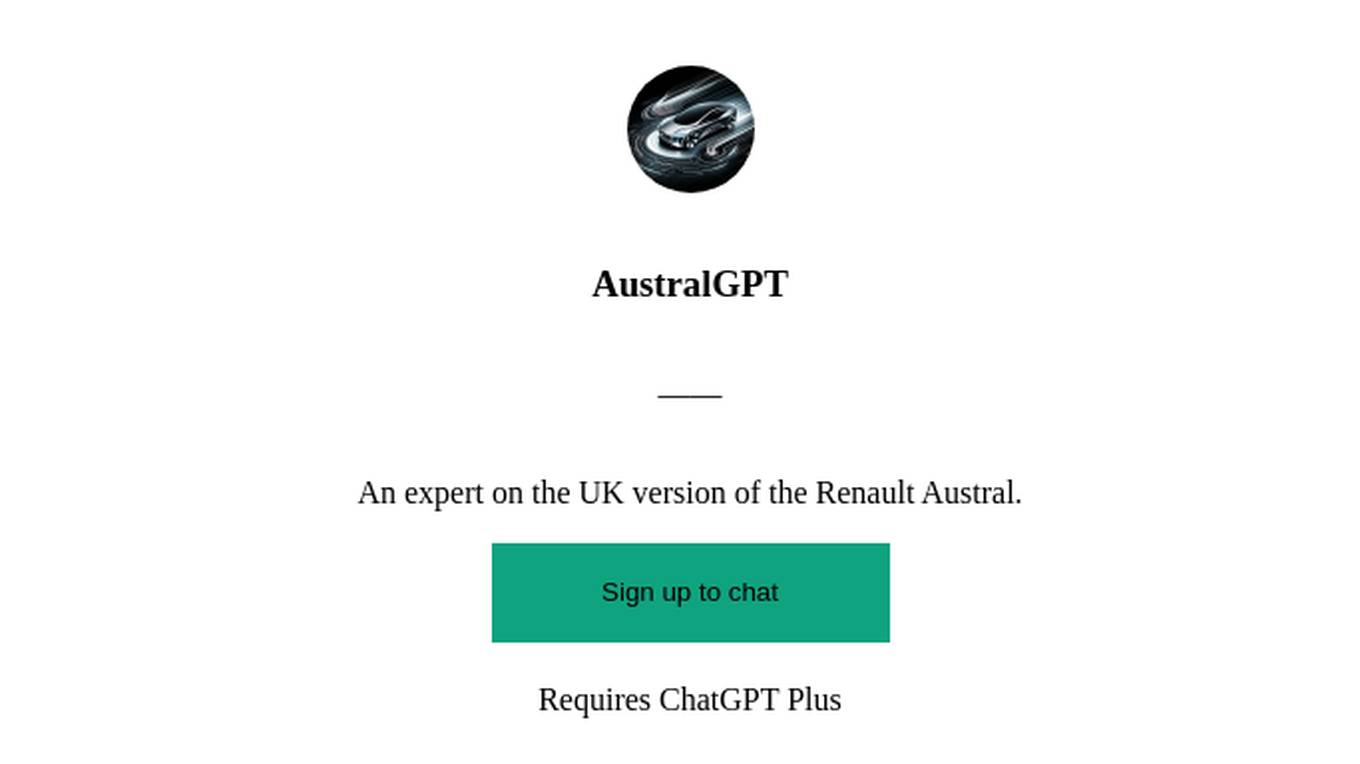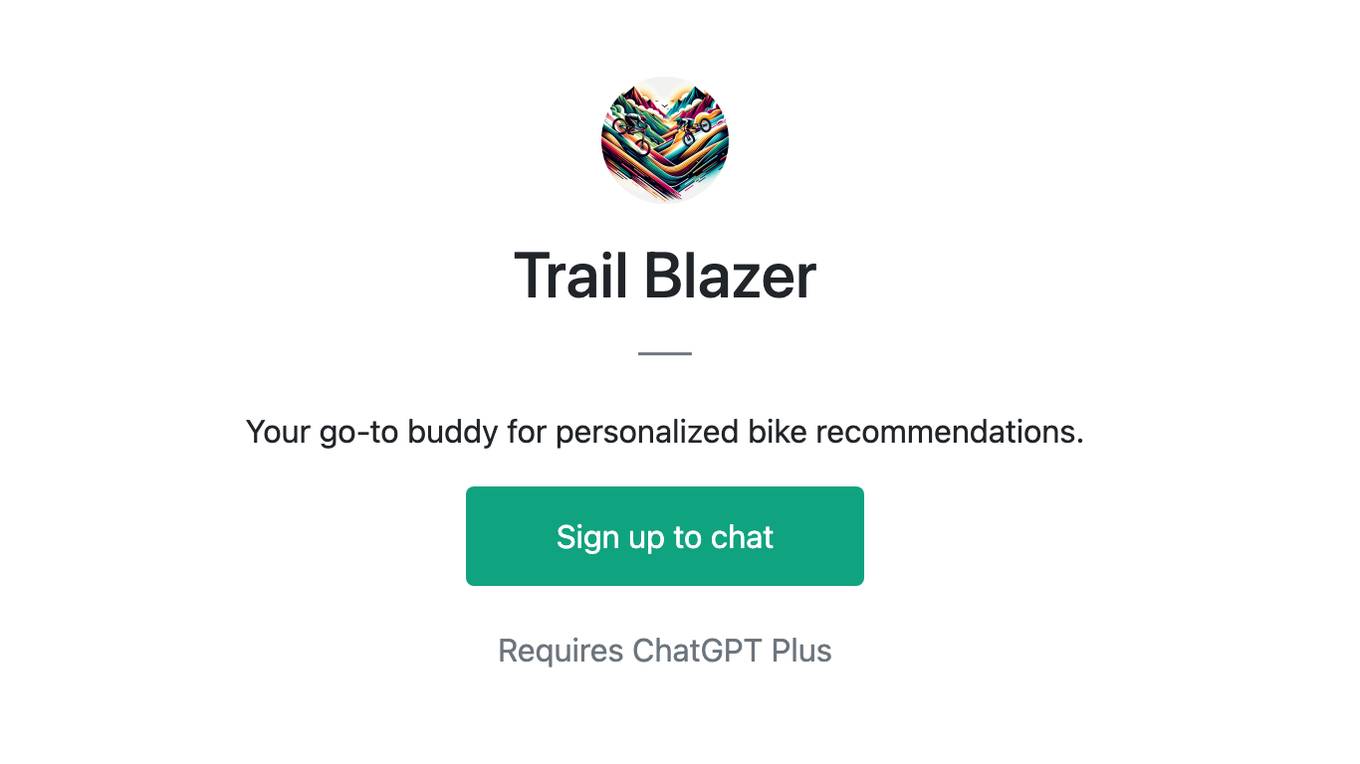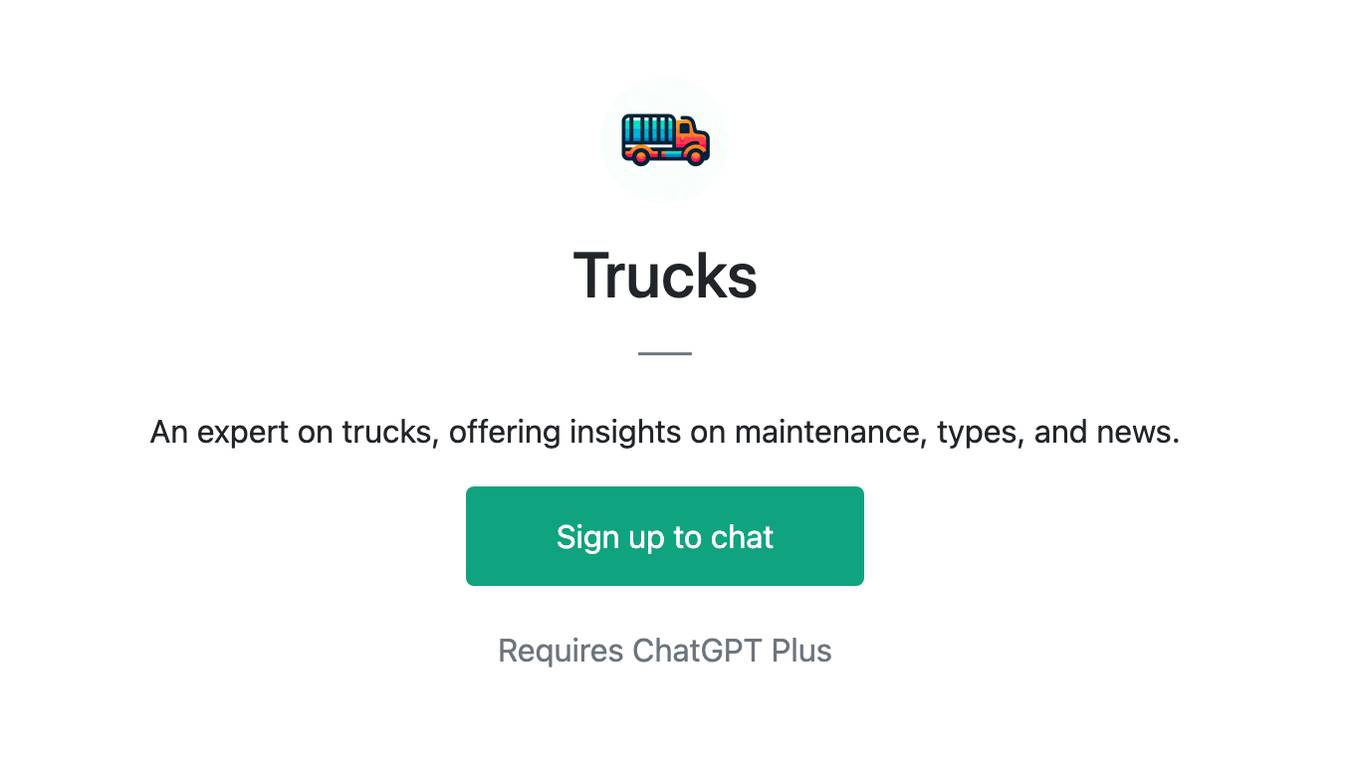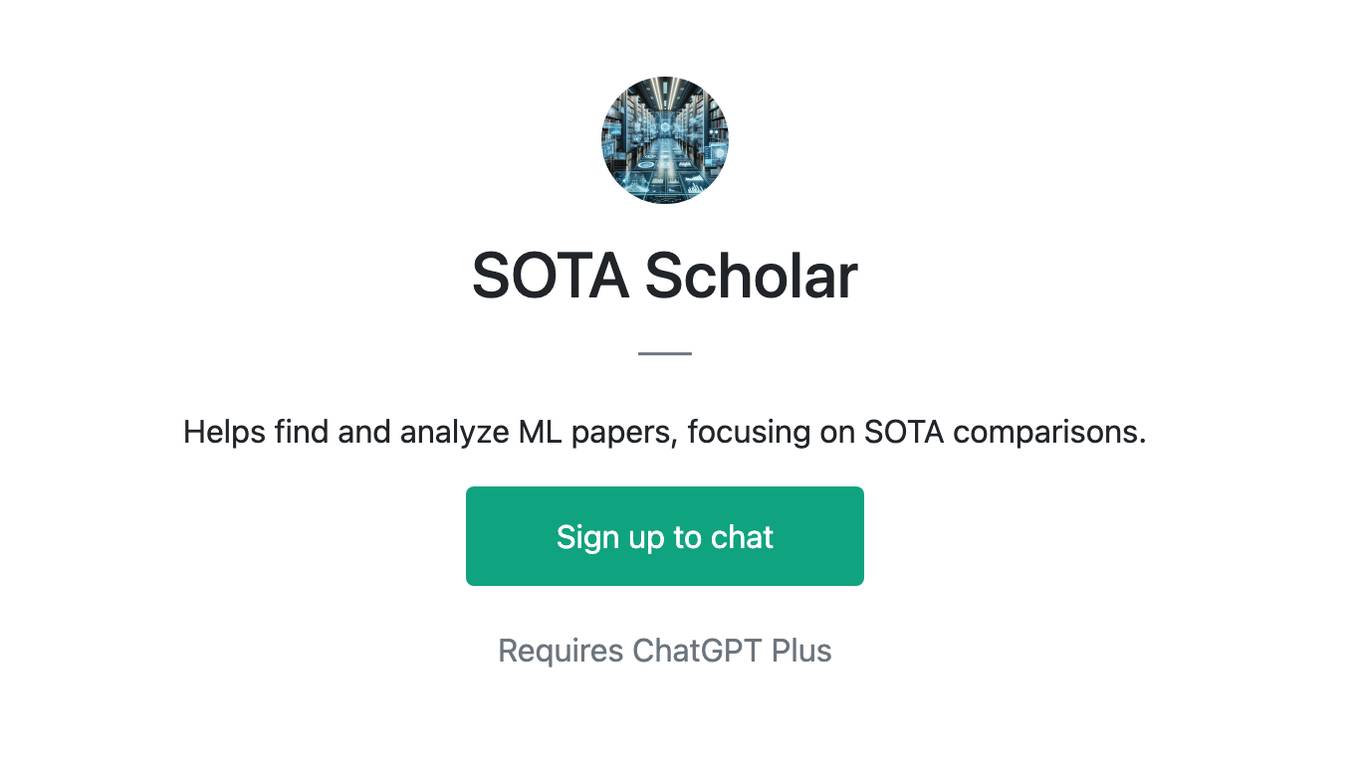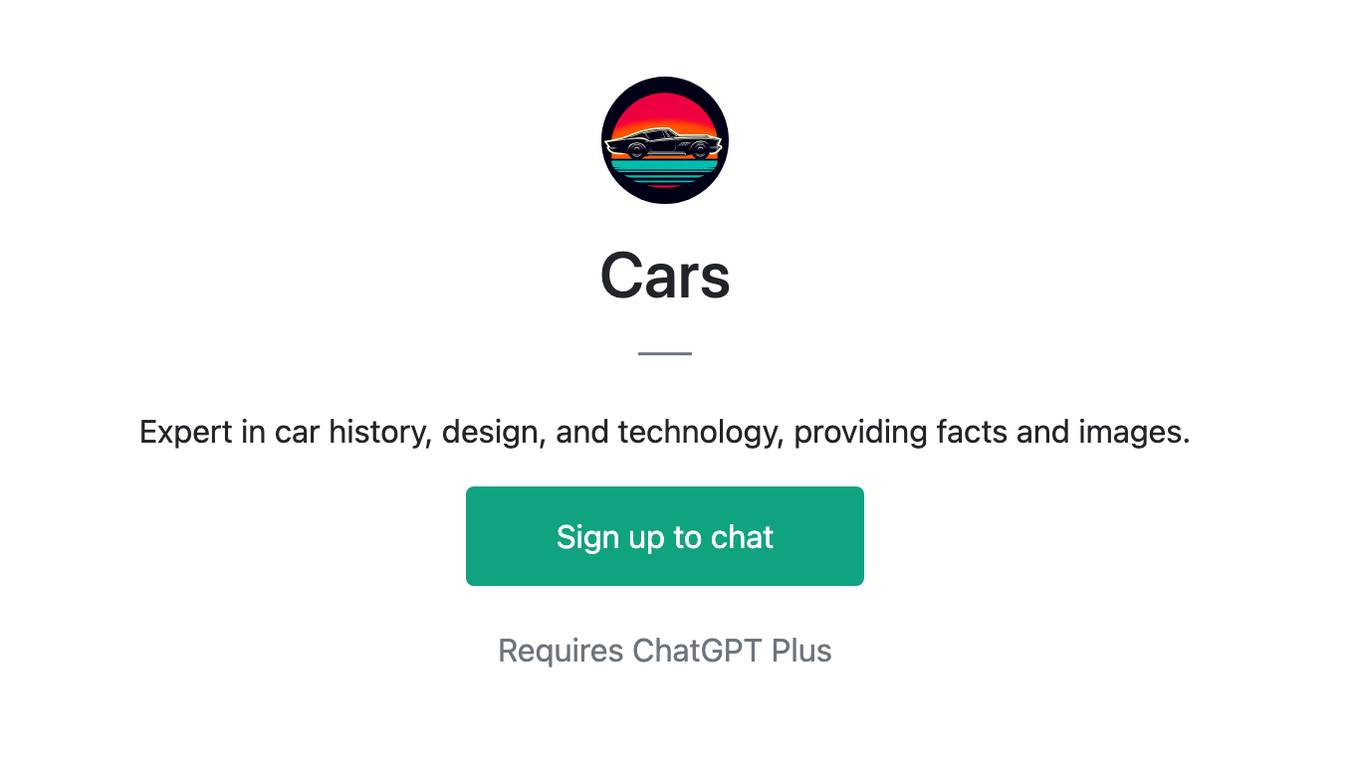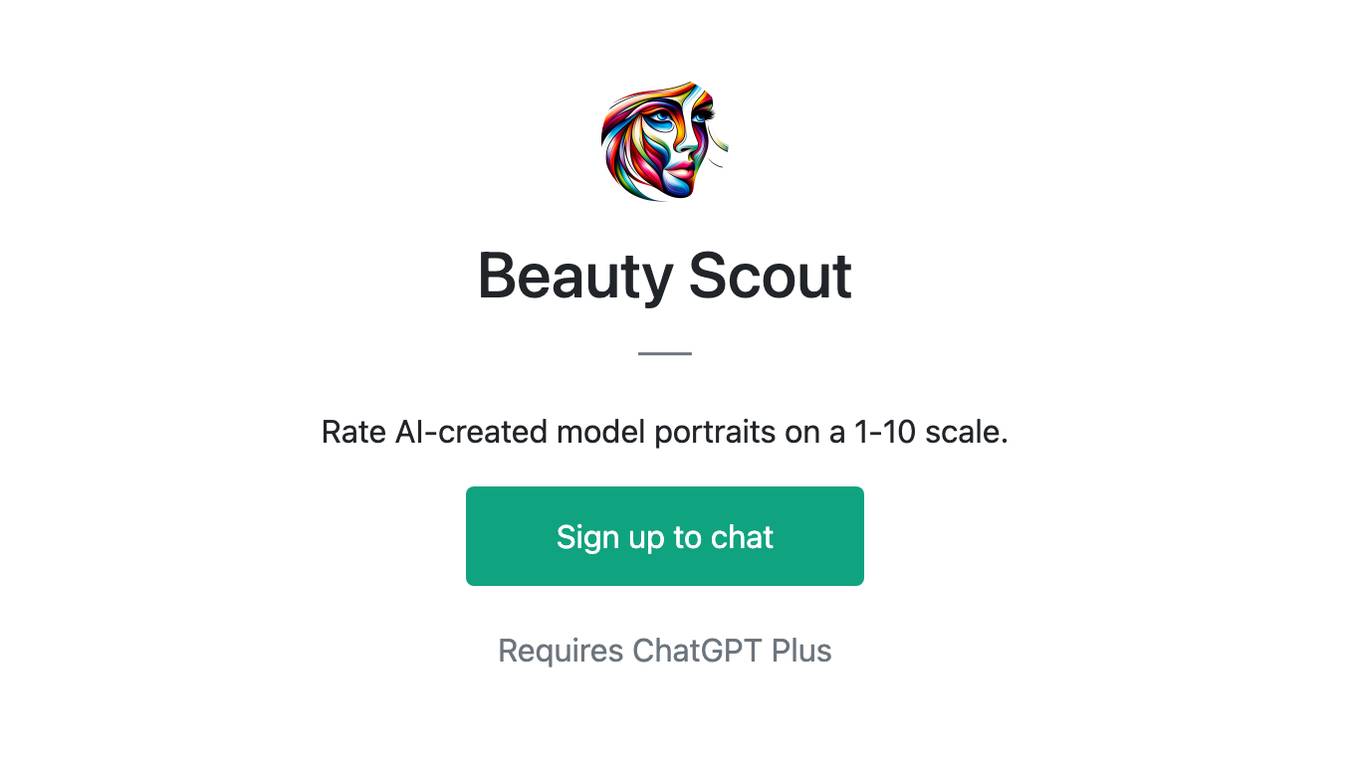Best AI tools for< Compare Models >
20 - AI tool Sites
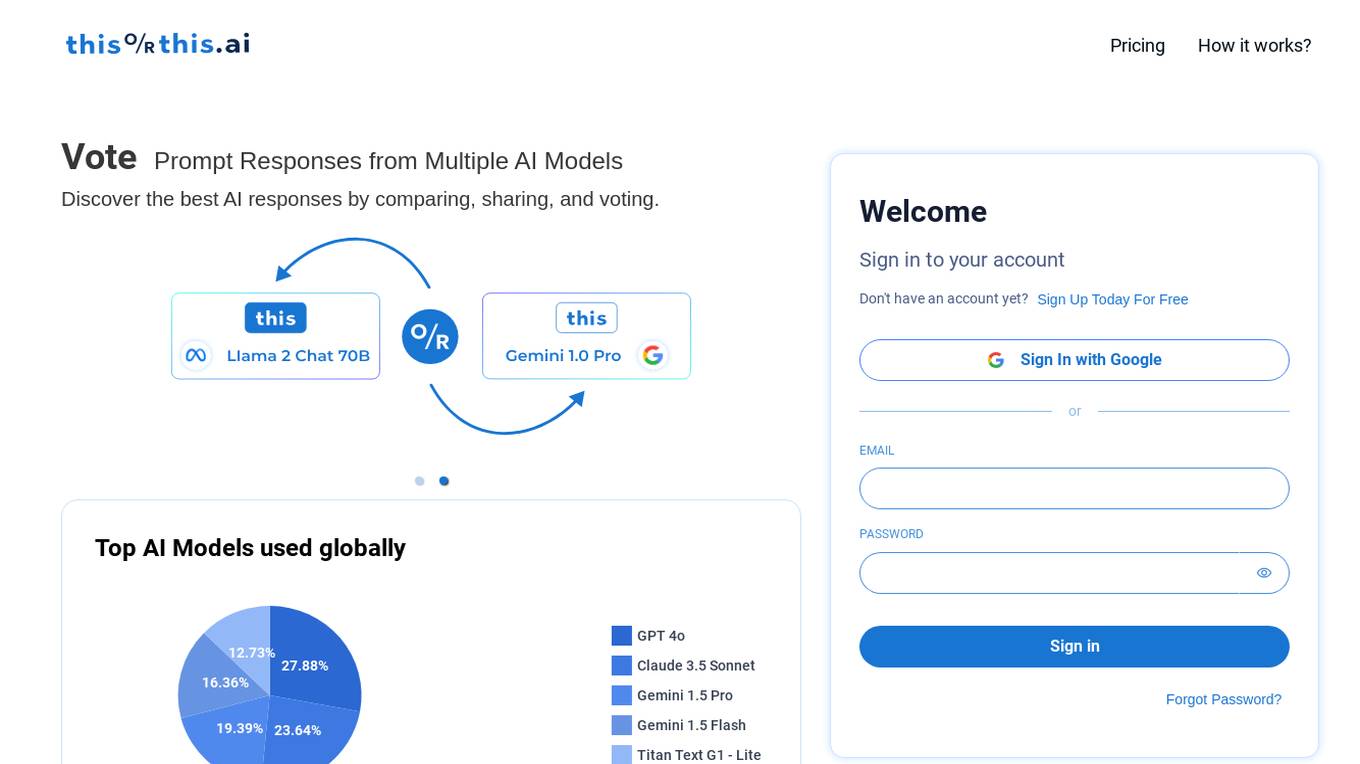
thisorthis.ai
thisorthis.ai is an AI tool that allows users to compare generative AI models and AI model responses. It helps users analyze and evaluate different AI models to make informed decisions. The tool requires JavaScript to be enabled for optimal functionality.
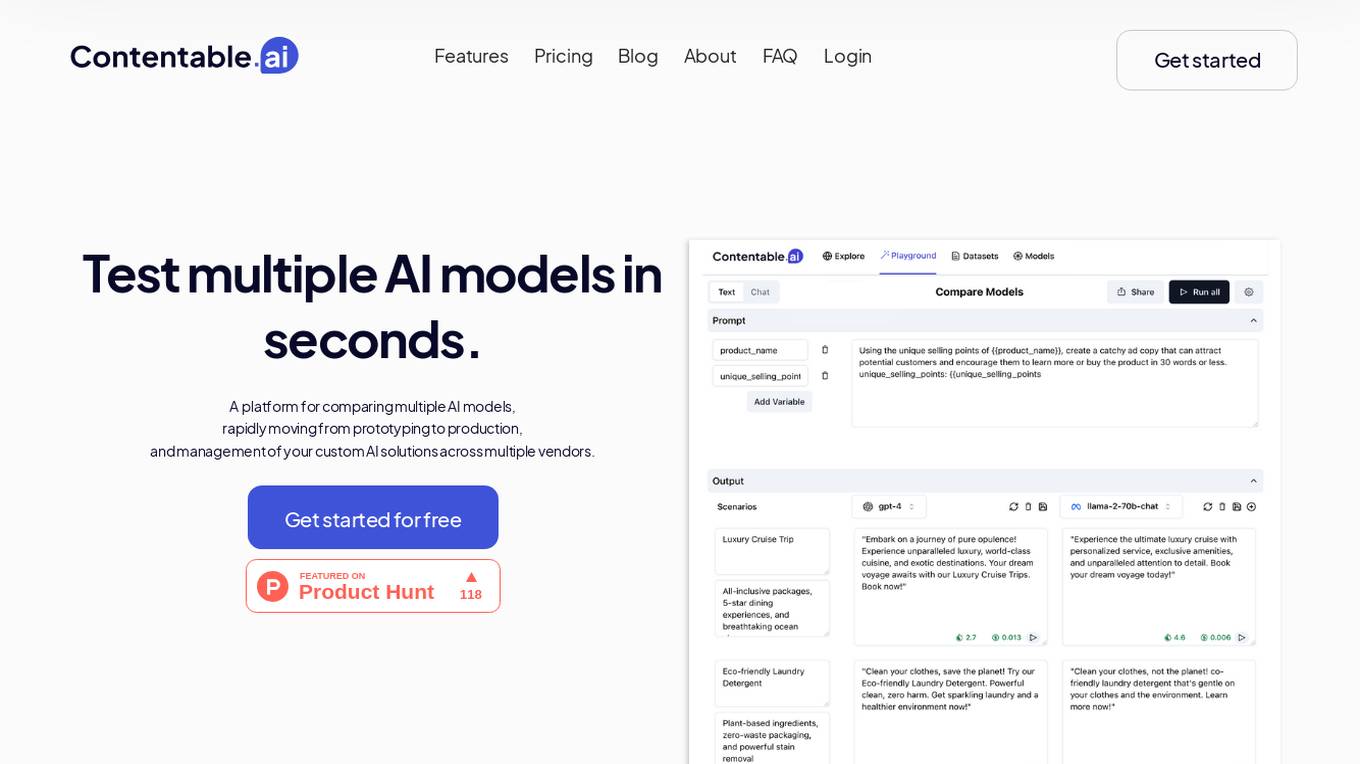
Contentable.ai
Contentable.ai is a platform for comparing multiple AI models, rapidly moving from prototyping to production, and management of your custom AI solutions across multiple vendors. It allows users to test multiple AI models in seconds, compare models side-by-side across top AI providers, collaborate on AI models with their team seamlessly, design complex AI workflows without coding, and pay as they go.
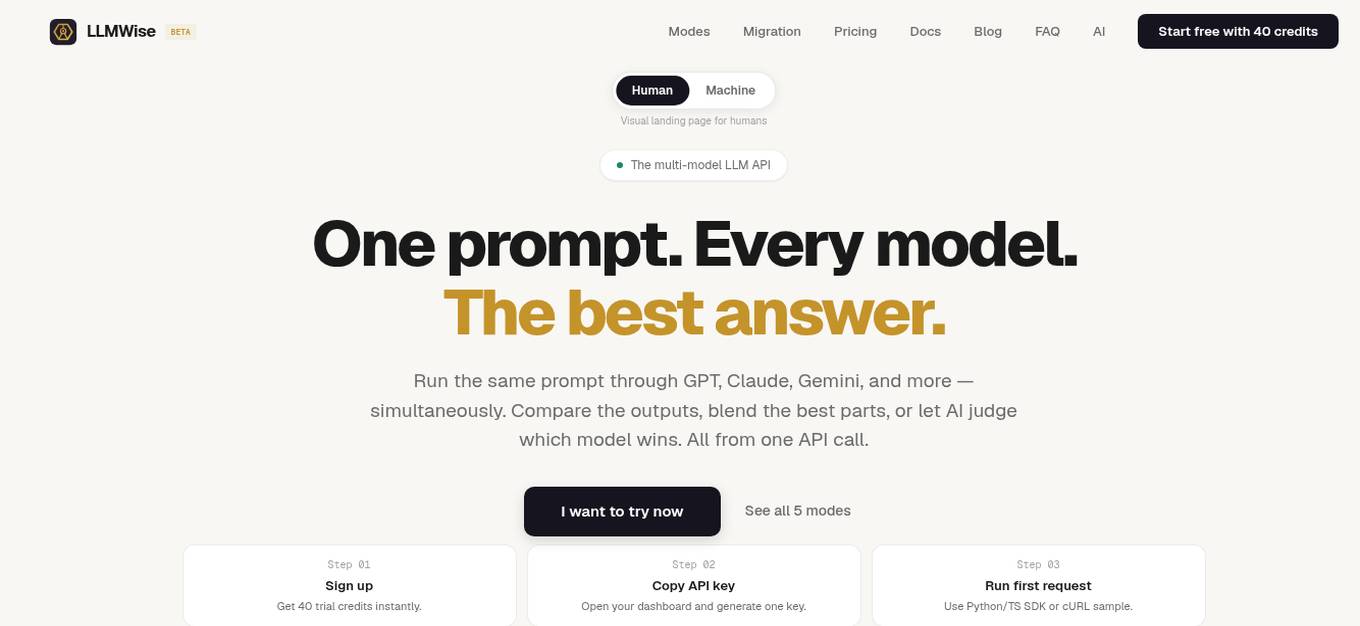
LLMWise
LLMWise is a multi-model LLM API tool that allows users to compare, blend, and route AI models simultaneously. It offers 5 modes - Chat, Compare, Blend, Judge, and Failover - to help users make informed decisions based on model outputs. With 31+ available models, LLMWise provides a user-friendly platform for orchestrating AI models, ensuring reliability, and optimizing costs. The tool is designed to streamline the integration of various AI models through one API call, offering features like real-time responses, per-model metrics, and failover routing.
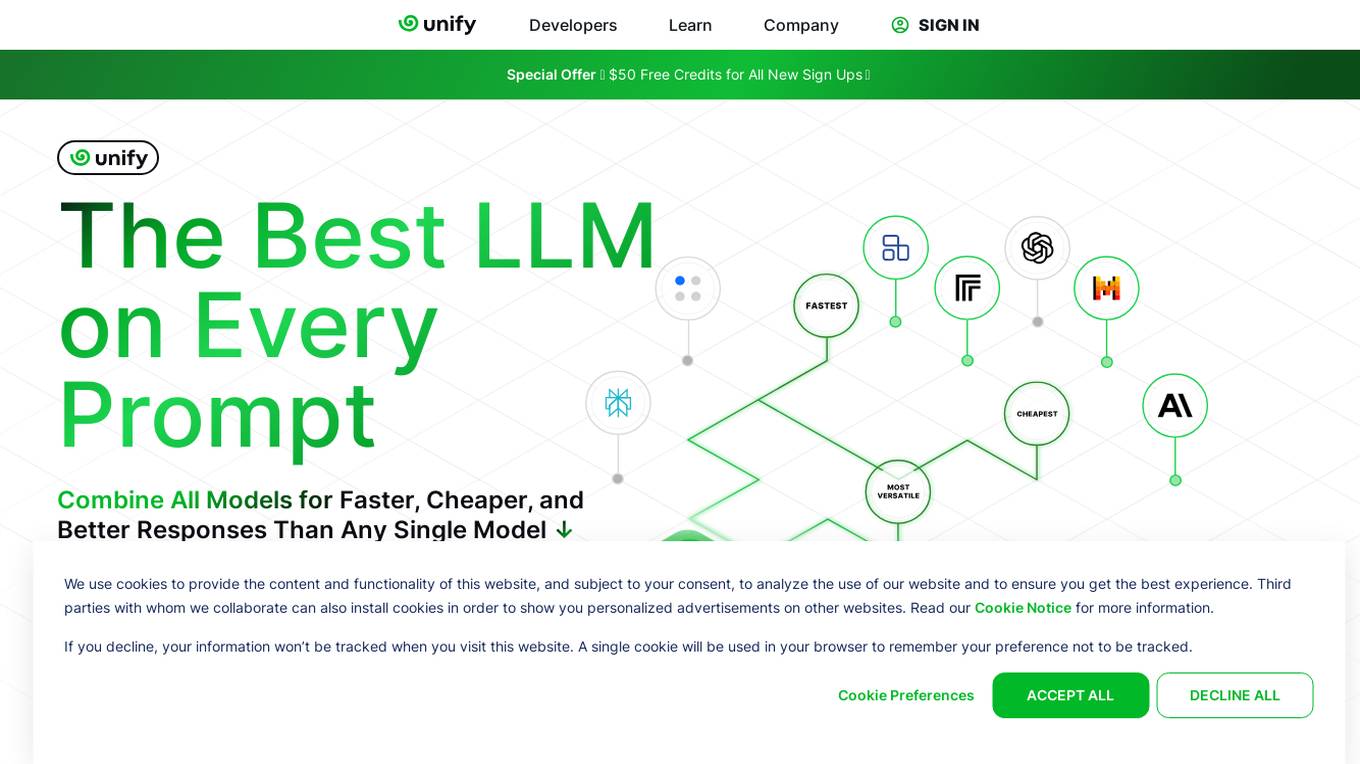
Unify
Unify is an AI tool that offers a unified platform for accessing and comparing various Language Models (LLMs) from different providers. It allows users to combine models for faster, cheaper, and better responses, optimizing for quality, speed, and cost-efficiency. Unify simplifies the complex task of selecting the best LLM by providing transparent benchmarks, personalized routing, and performance optimization tools.
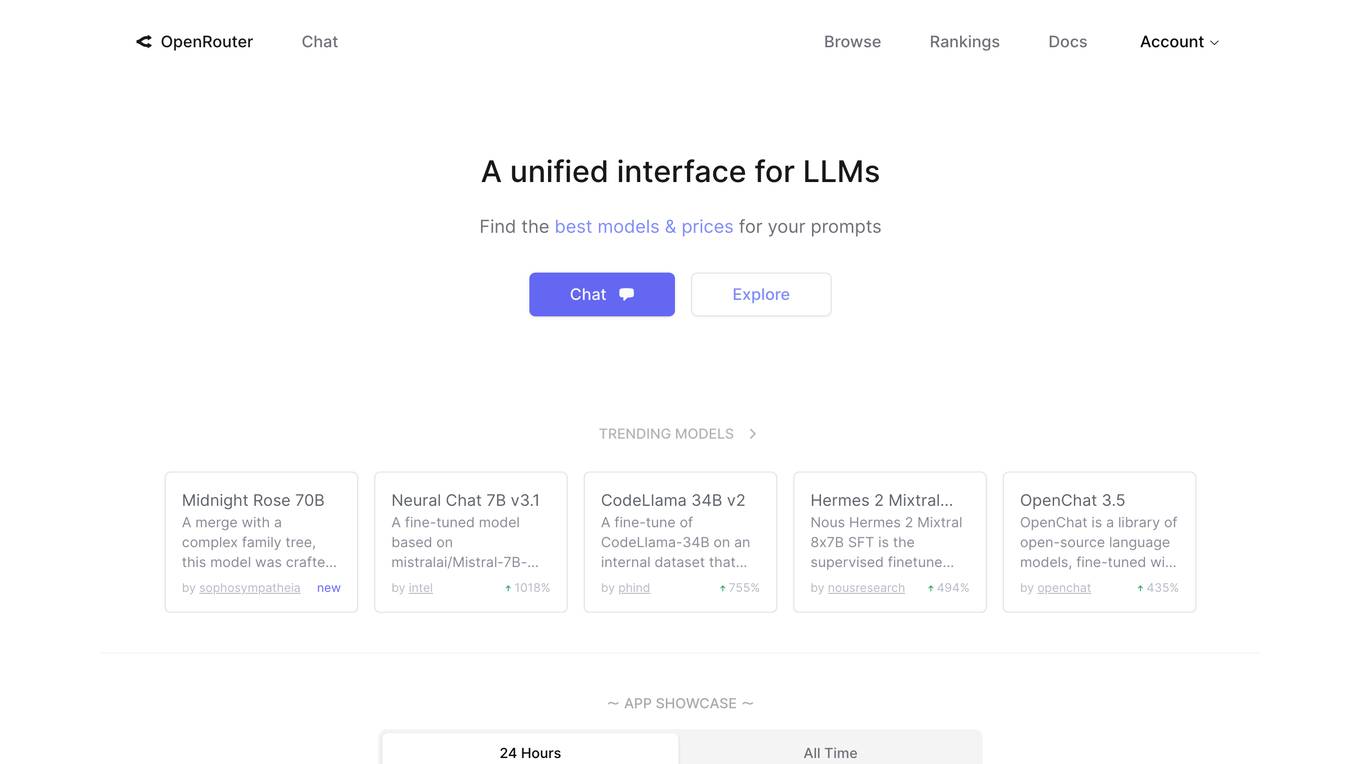
OpenRouter
OpenRouter is an AI tool that provides a unified interface for Large Language Models (LLMs). Users can find the best models and prices for various prompts related to roleplay, programming, marketing, technology, science, translation, legal, finance, health, trivia, and academia. The platform offers transformer-based models with multilingual capabilities, coding, mathematics, and reasoning. It features SwiGLU activation, attention QKV bias, and group query attention. OpenRouter allows users to interact with trending models, simulate the web, chat with multiple LLMs simultaneously, and engage in AI character chat and roleplay.
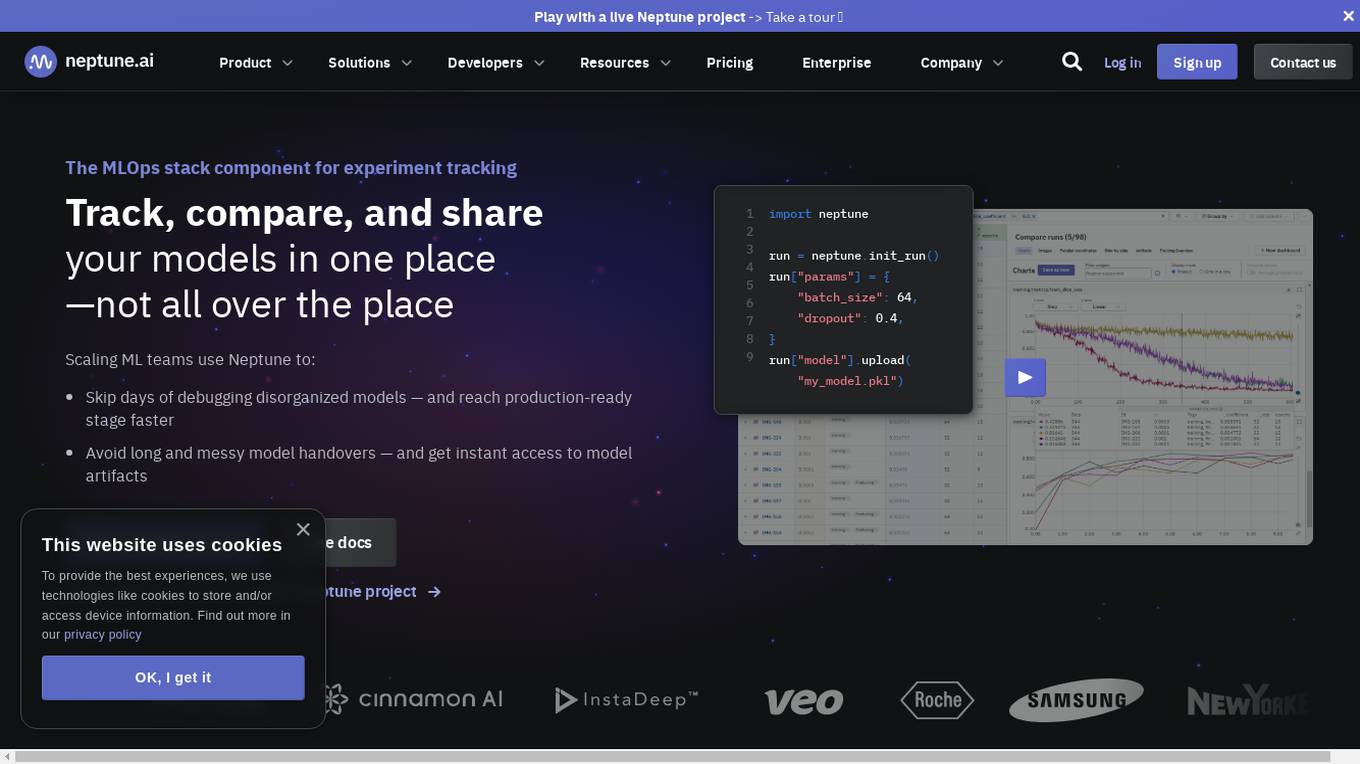
Neptune
Neptune is an MLOps stack component for experiment tracking. It allows users to track, compare, and share their models in one place. Neptune is used by scaling ML teams to skip days of debugging disorganized models, avoid long and messy model handovers, and start logging for free.

Rawbot
Rawbot is an AI model comparison tool that simplifies the process of selecting the best AI models for projects and applications. It allows users to compare various AI models side-by-side, providing insights into their performance, strengths, weaknesses, and suitability. Rawbot helps users make informed decisions by identifying the most suitable AI models based on specific requirements, leading to optimal results in research, development, and business applications.
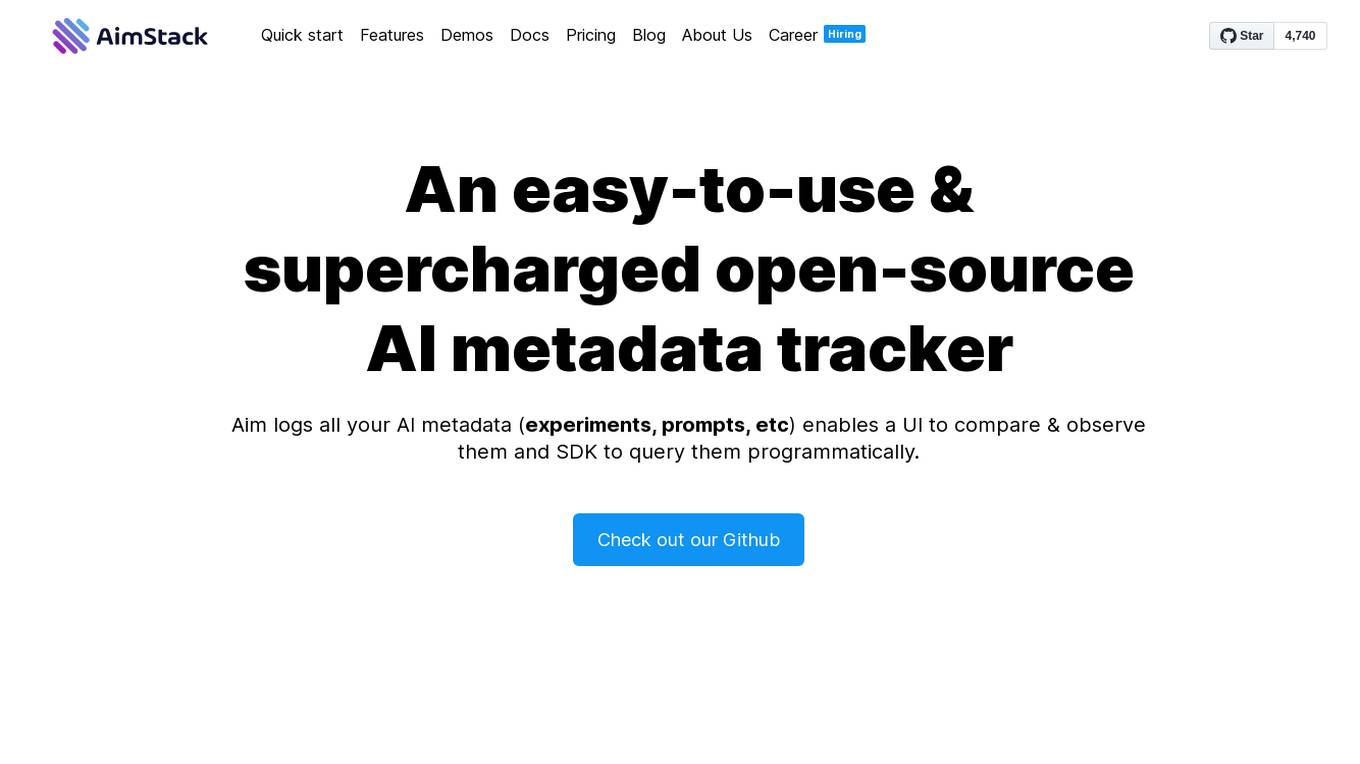
Aim
Aim is an open-source, self-hosted AI Metadata tracking tool designed to handle 100,000s of tracked metadata sequences. Two most famous AI metadata applications are: experiment tracking and prompt engineering. Aim provides a performant and beautiful UI for exploring and comparing training runs, prompt sessions.
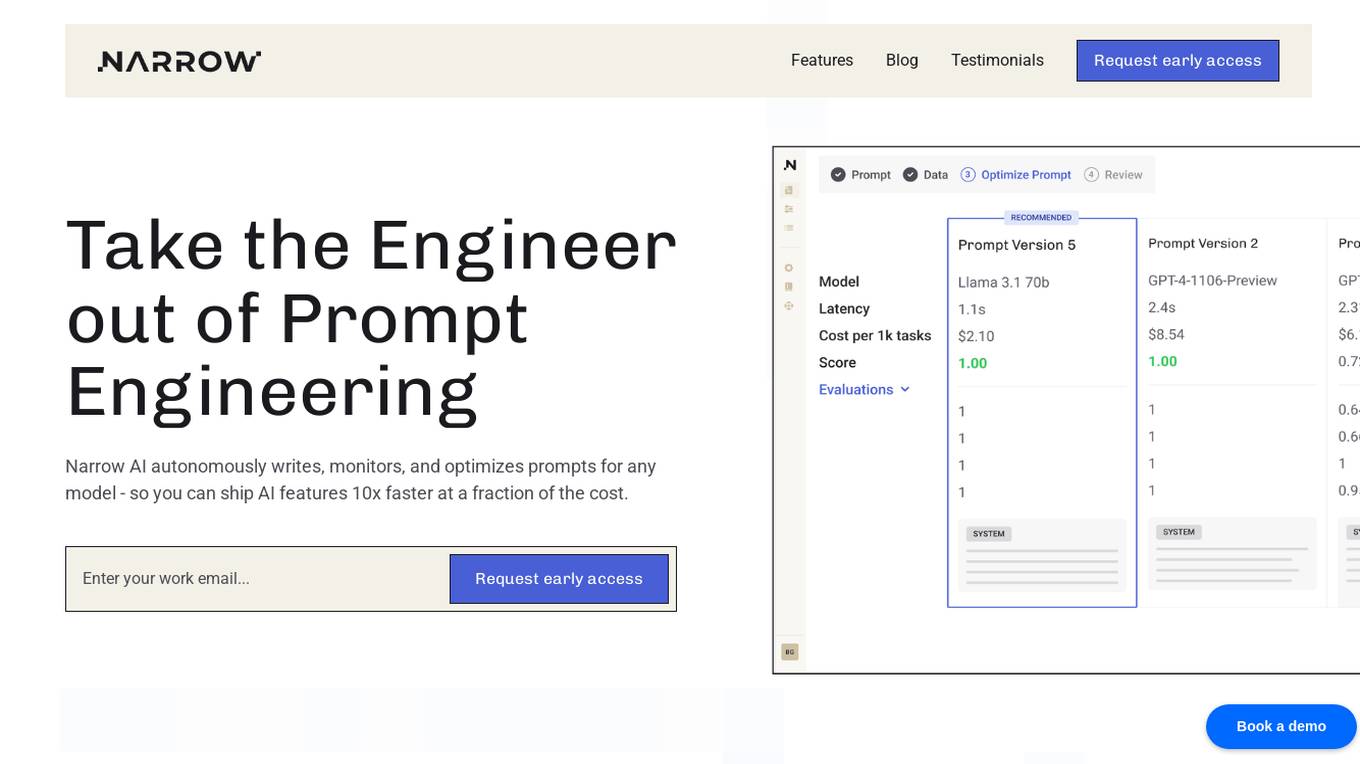
Narrow AI
Narrow AI is an AI application that autonomously writes, monitors, and optimizes prompts for any model, enabling users to ship AI features 10x faster at a fraction of the cost. It streamlines the workflow by allowing users to test new models in minutes, compare prompt performance, and deploy on the optimal model for their use case. Narrow AI helps users maximize efficiency by generating expert-level prompts, adapting prompts to new models, and optimizing prompts for quality, cost, and speed.
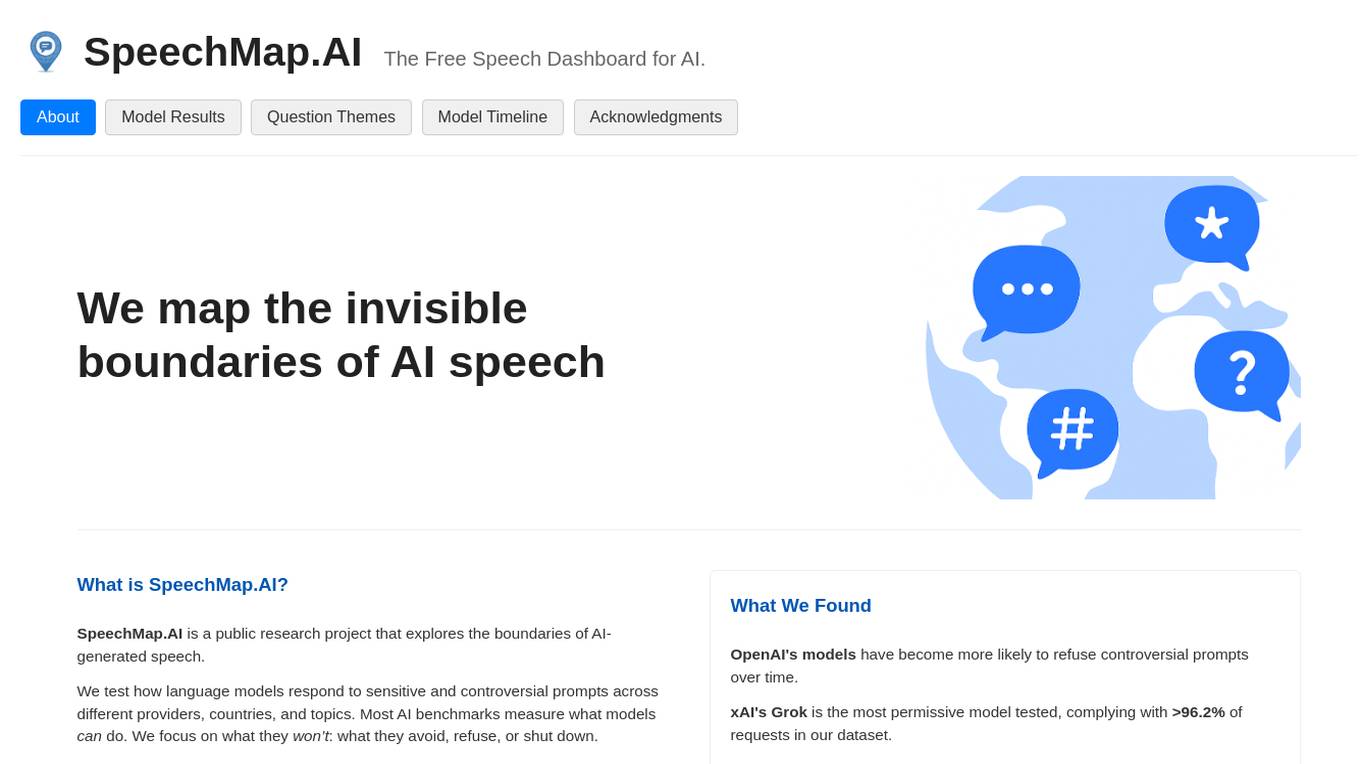
SpeechMap.AI
SpeechMap.AI is a public research project that explores the boundaries of AI-generated speech. It focuses on testing how language models respond to sensitive and controversial prompts across different providers, countries, and topics. The platform aims to reveal the invisible boundaries of AI speech by analyzing what models avoid, refuse, or shut down. By measuring and comparing AI models' responses, SpeechMap.AI sheds light on the evolving landscape of AI-generated speech and its impact on public expression.
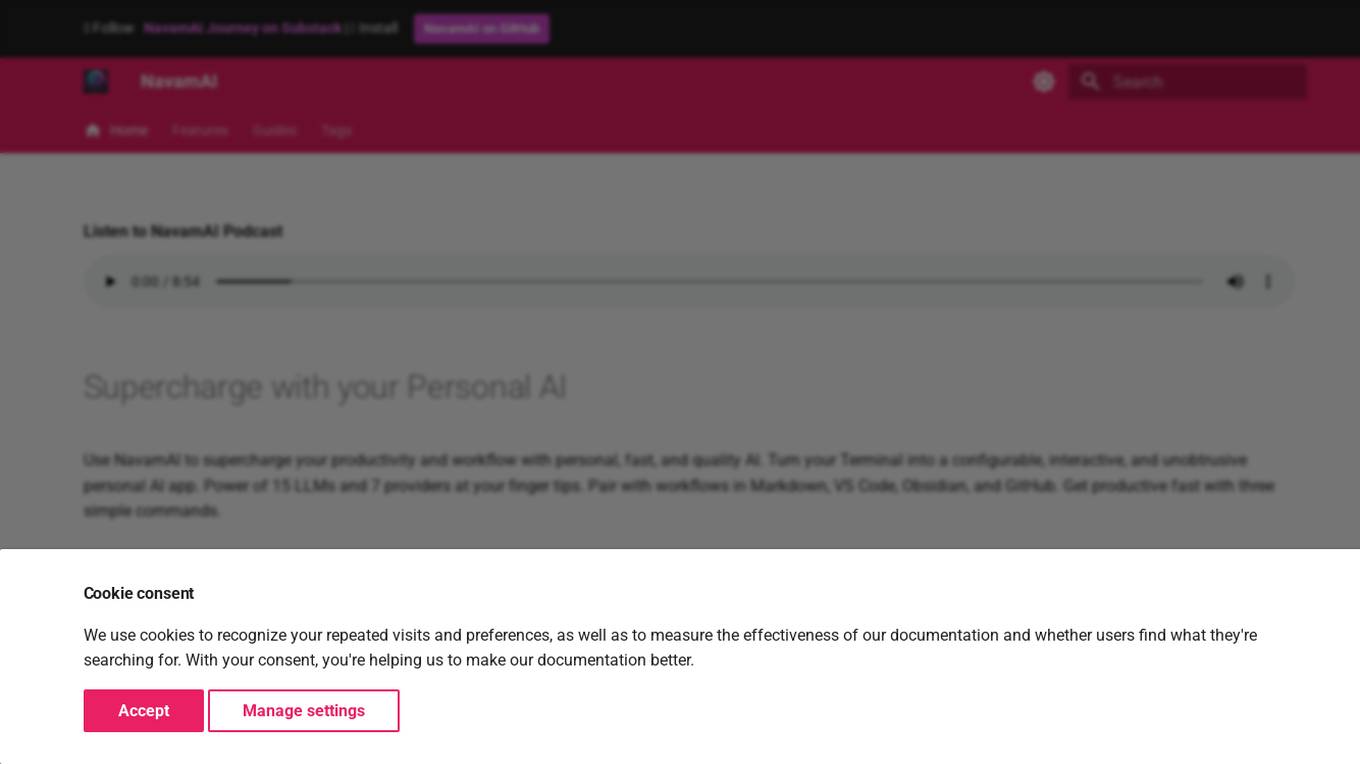
NavamAI
NavamAI is a personal AI tool designed to supercharge productivity and workflow by providing fast and quality AI capabilities. It offers a rich UI within the command prompt, allowing users to interact with 15 language models and 7 providers seamlessly. NavamAI enables users to automate markdown workflows, generate situational apps, and create personalized AI applications with ease. With features like quick start commands, customizable prompts, and privacy controls, NavamAI empowers users to do more with less and make their AI experience their own.
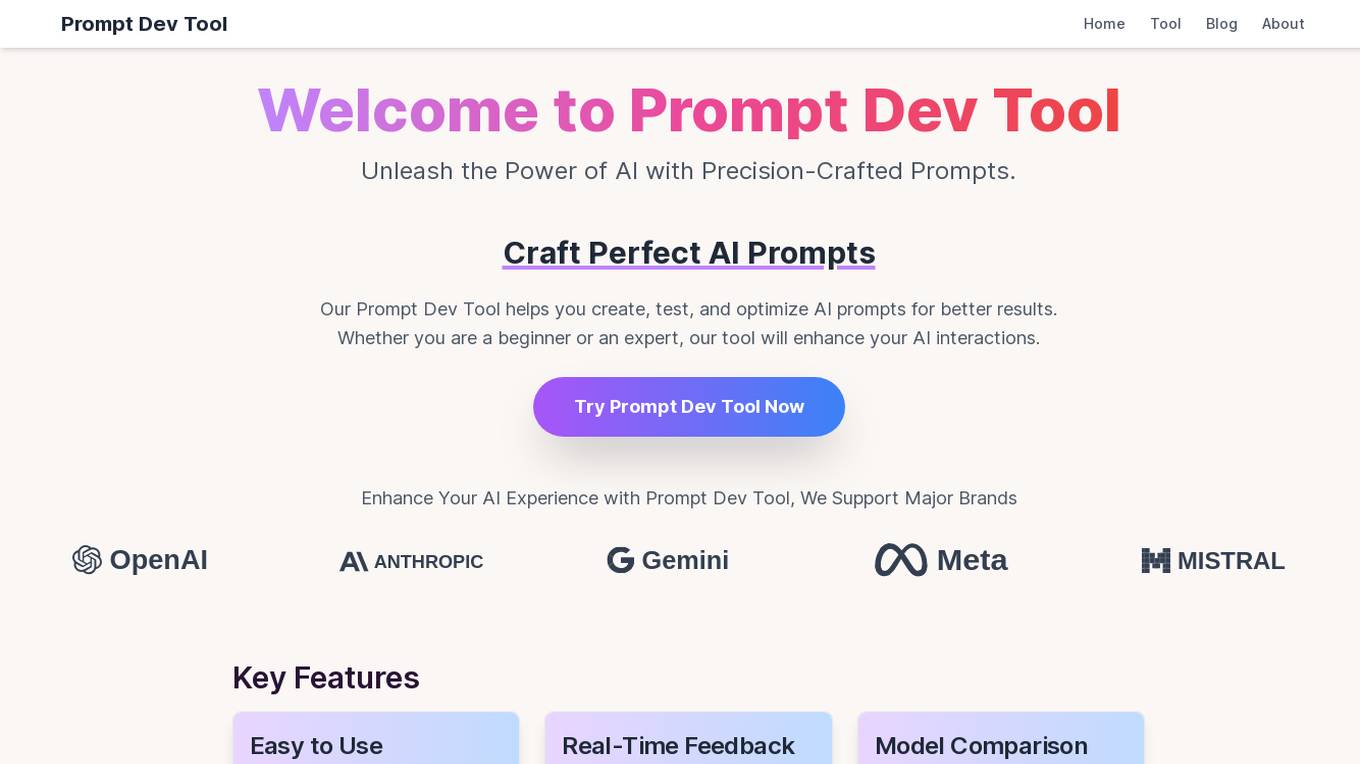
Prompt Dev Tool
Prompt Dev Tool is an AI application designed to boost prompt engineering efficiency by helping users create, test, and optimize AI prompts for better results. It offers an intuitive interface, real-time feedback, model comparison, variable testing, prompt iteration, and advanced analytics. The tool is suitable for both beginners and experts, providing detailed insights to enhance AI interactions and improve outcomes.

FLORA
FLORA is an intelligent canvas that serves as a creative AI tool, connecting various AI applications to help users ideate, iterate, and bring their ideas to life. It allows real-time collaboration among team members using favorite AI tools, offering a platform to explore different workflows. FLORA simplifies AI complexities by curating the best text, image, and video models, empowering users to unleash their creativity on a new canvas.

Aicado.ai
Aicado.ai is an AI tool that provides comprehensive comparisons and insights into various AI models such as GPT-4, Llama, Gemini, and more. Users can access detailed reviews and features to find the best AI model for their specific needs. The platform offers a premium dashboard for in-depth analysis and comparison of different AI models.
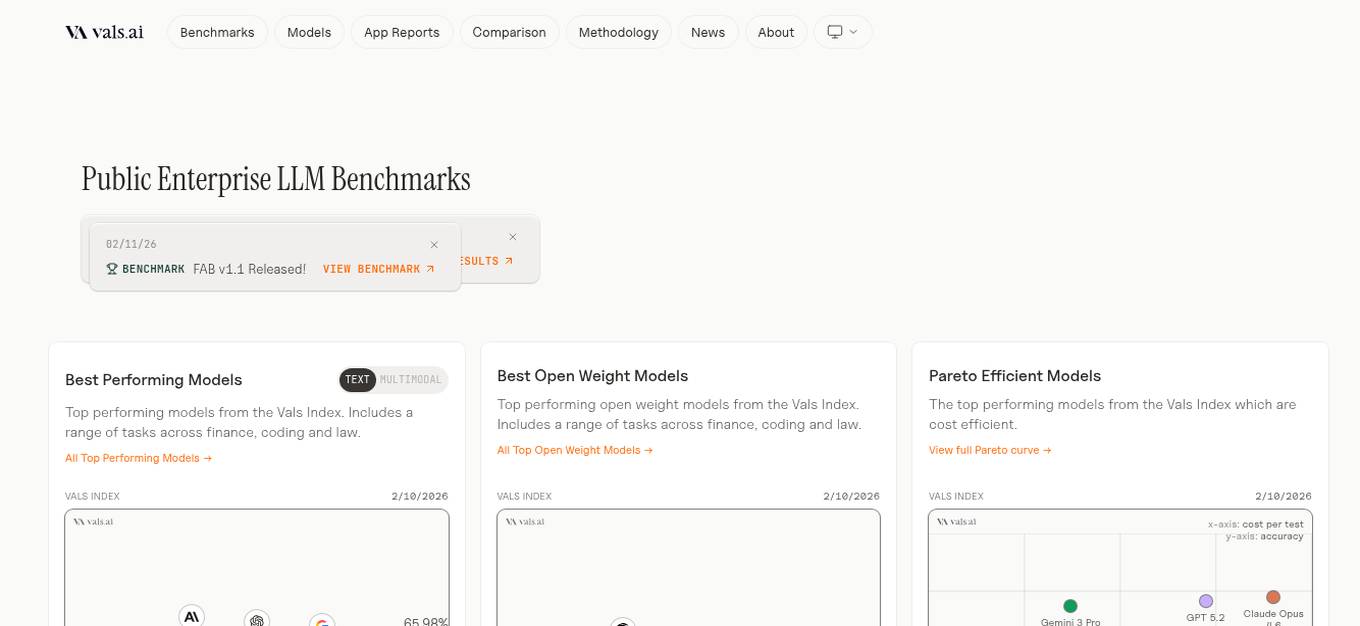
Vals AI
Vals AI is an advanced AI tool that provides benchmark reports and comparisons for various models in the fields of finance, coding, and law. The platform offers insights into the performance of different AI models across different tasks and industries. Vals AI aims to bridge the gap in model benchmarking and provide valuable information for users looking to evaluate and compare AI models for specific tasks.
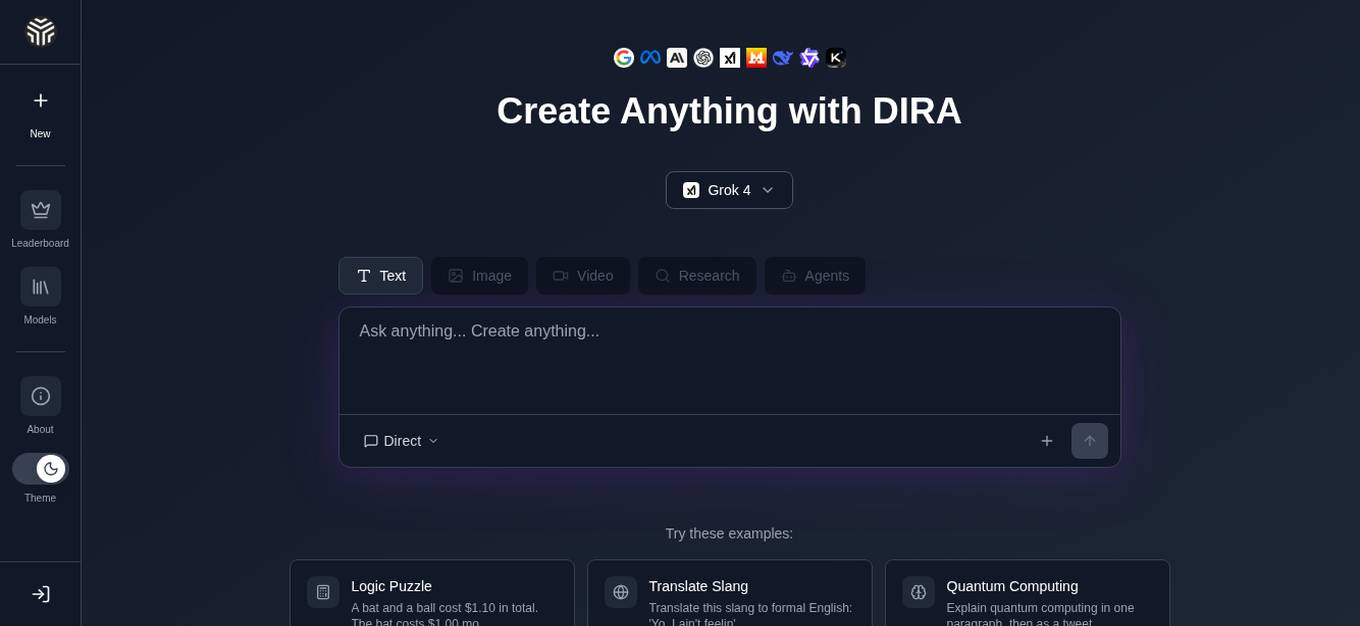
AARENA
AARENA is an AI-powered platform that allows users to build fully functional apps and websites through simple conversations. It provides a user-friendly interface where individuals can create various digital products without the need for coding knowledge. AARENA leverages AI technology to streamline the development process and empower users to bring their ideas to life efficiently.
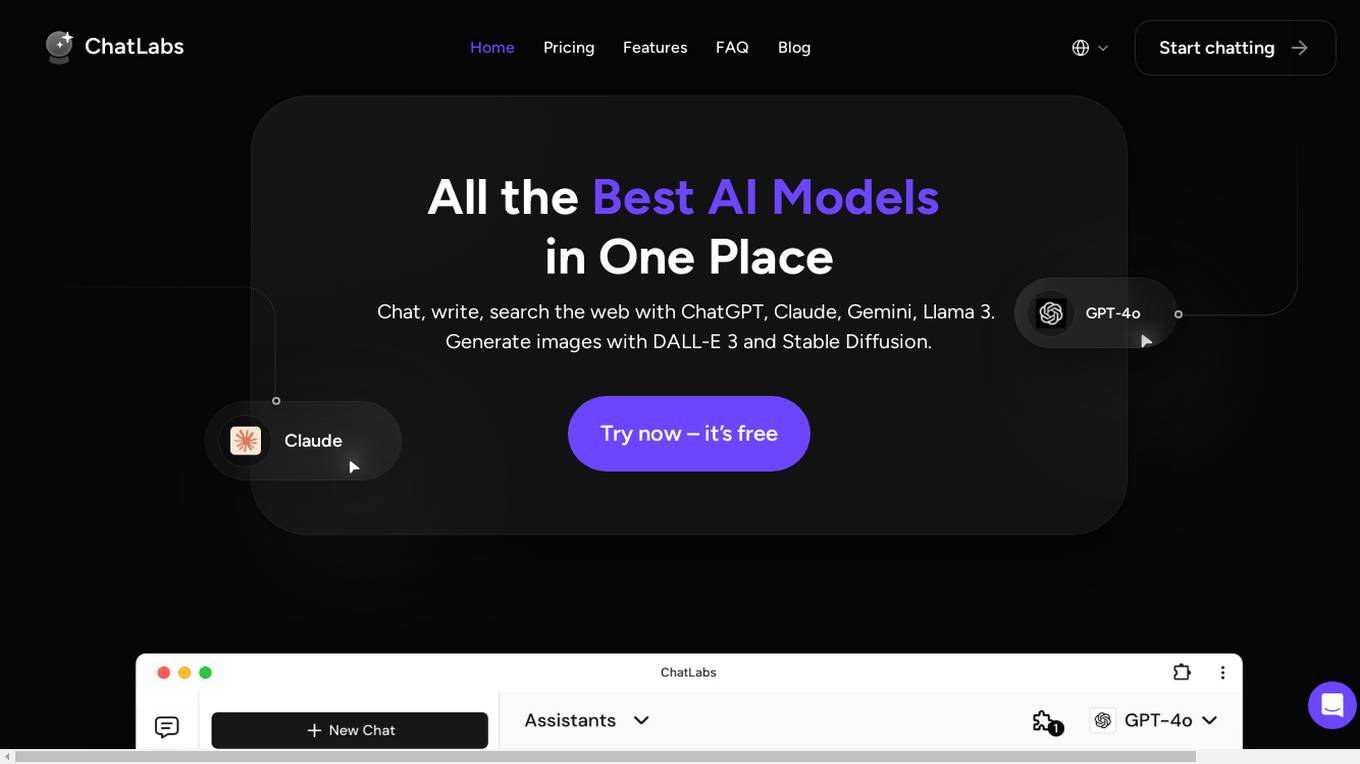
ChatLabs
ChatLabs is an AI application that provides users with access to a variety of AI models for tasks such as chatting, writing, web searching, image generation, and more. Users can interact with AI assistants, browse the web, generate AI art, and utilize voice input features. The platform offers a prompt library, chat with files functionality, split-screen mode, and a Chrome extension for enhanced user experience.
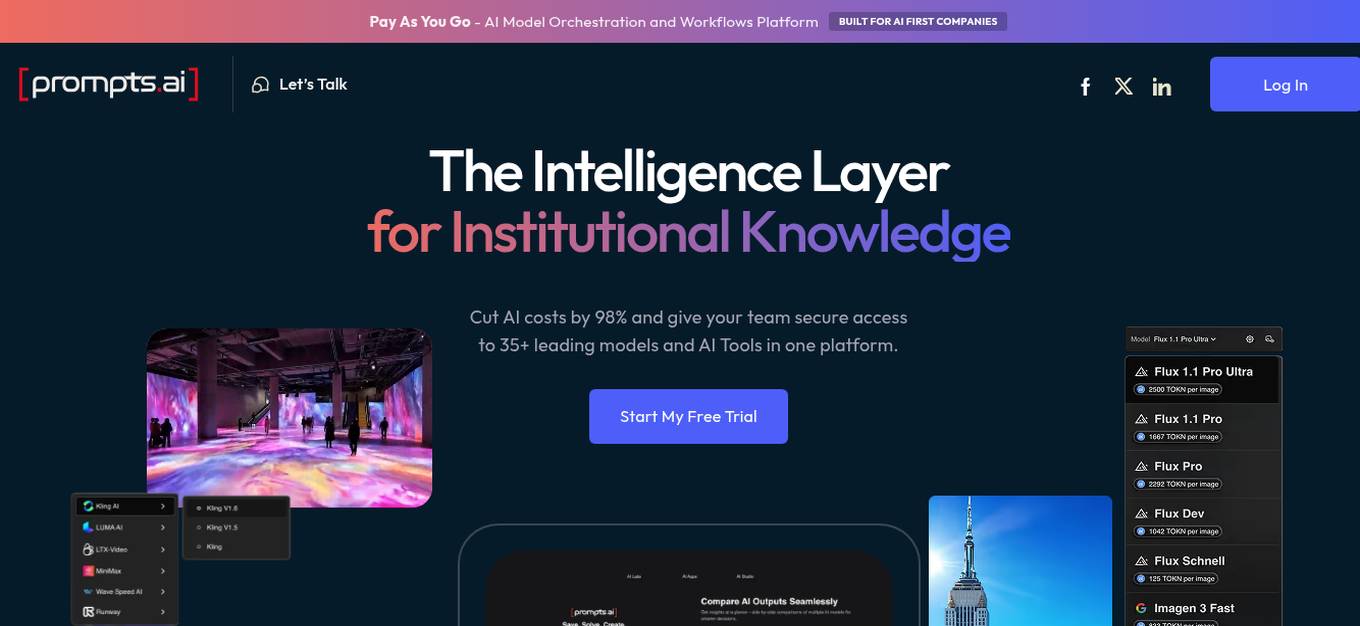
Prompts.ai
Prompts.ai is a generative AI tool designed for enterprise prompt engineering. It offers a platform for AI model orchestration and workflows, catering to AI-first companies. The tool aims to unify various AI tools in one secure platform, enabling users to access leading AI language models like GPT, Claude, LLaMA, and Gemini. Prompts.ai helps cut AI costs significantly, streamlines workflows, and enforces governance at scale. It is trusted by top enterprises, creative teams, and academic institutions for deploying secure, compliant AI workflows that save time, cut costs, and drive real results.
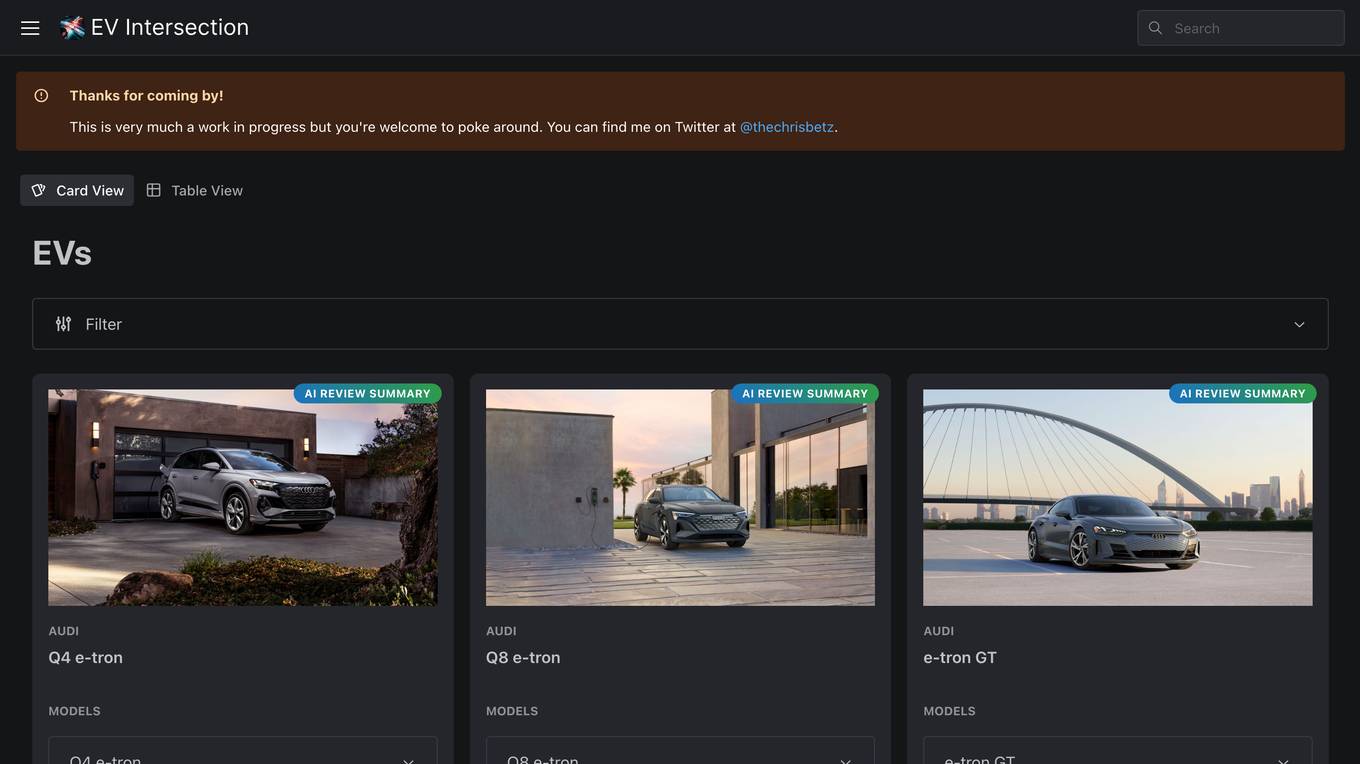
EV Intersection
EV Intersection is a website dedicated to helping users find their next electric vehicle. The site provides detailed information on various electric vehicle models, including specifications such as range, price, motor type, acceleration, and horsepower. Users can easily compare different EV models and filter them based on their preferences. Whether you're looking for a compact city car or a high-performance luxury SUV, EV Intersection has you covered with comprehensive reviews and summaries.
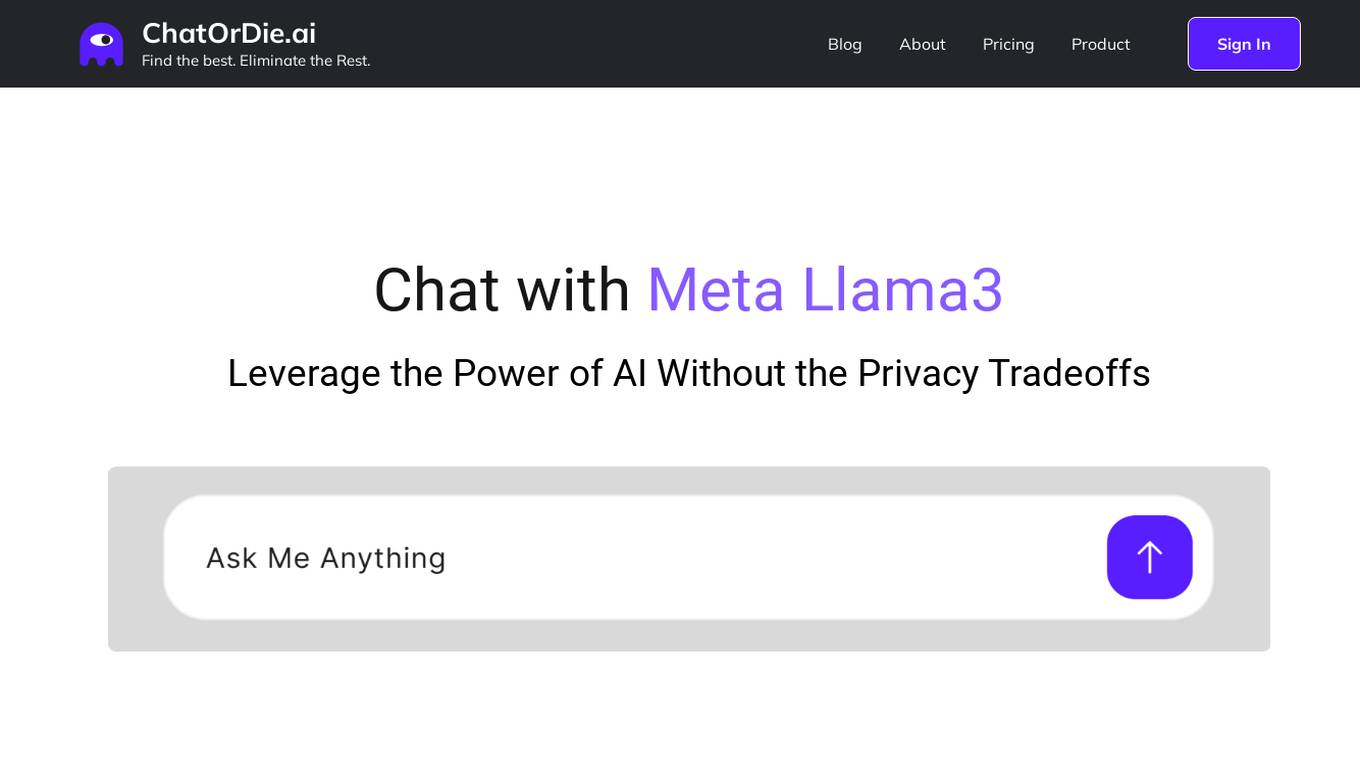
ChatOrDie.ai
ChatOrDie.ai is an AI-powered platform that allows users to chat with various AI models such as ChatGPT-4, Claude 3, Gemini 1.5, and more. It emphasizes privacy by ensuring that user conversations are anonymous, not tracked, and not used for training AI models. Users can compare different AI models side by side, spot biases, hallucinations, and errors, and access new trending AI models. The platform is designed to leverage the power of AI without compromising user privacy.
0 - Open Source AI Tools
20 - OpenAI Gpts

Auto Advisor
A helpful guide for car buyers, focusing on potential issues with different car models.
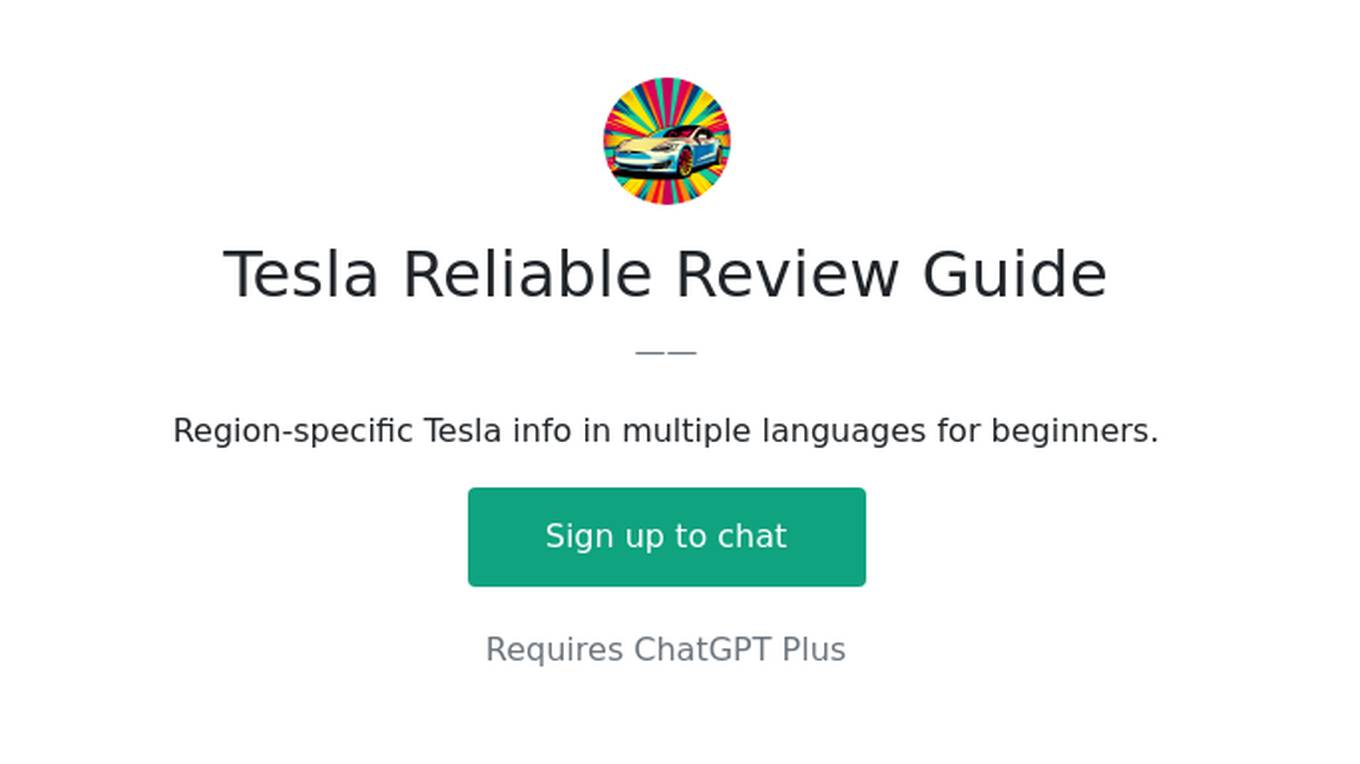
Tesla Reliable Review Guide
Region-specific Tesla info in multiple languages for beginners.
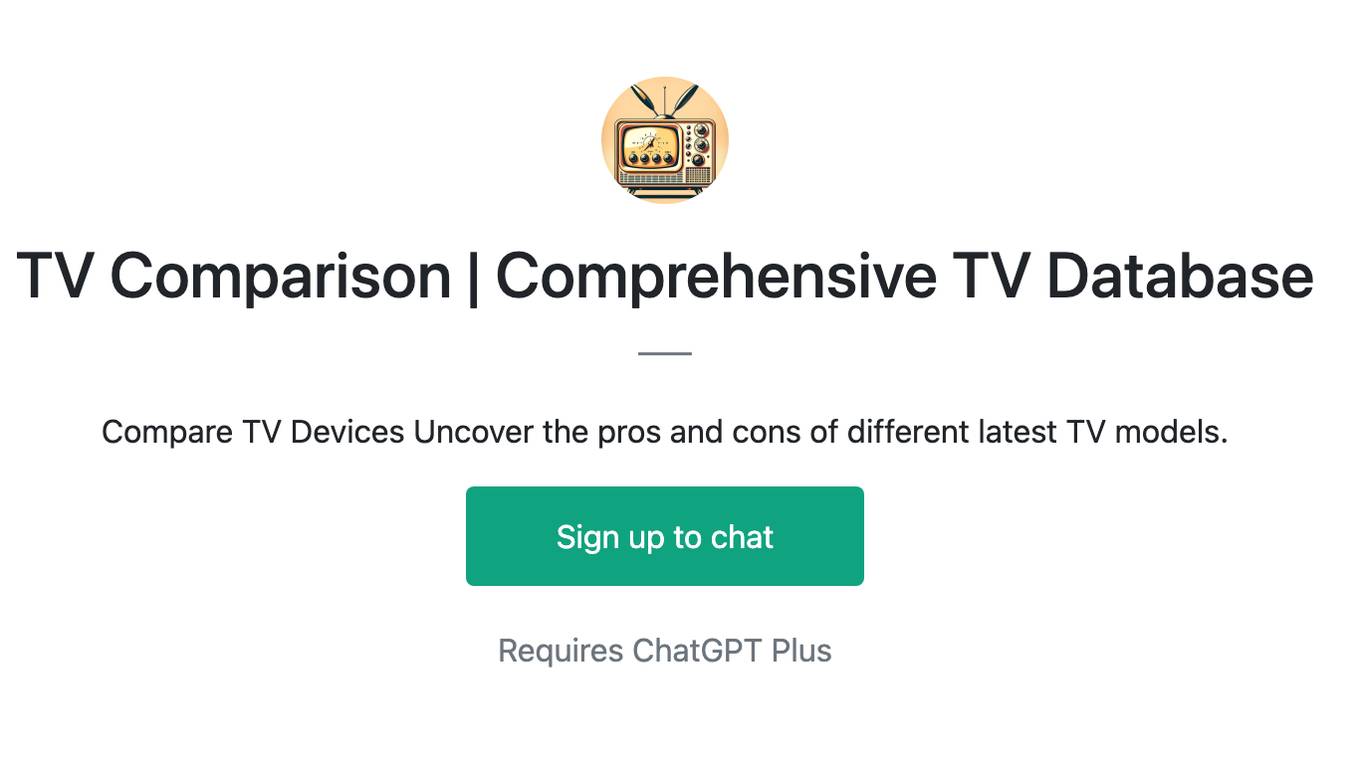
TV Comparison | Comprehensive TV Database
Compare TV Devices Uncover the pros and cons of different latest TV models.



